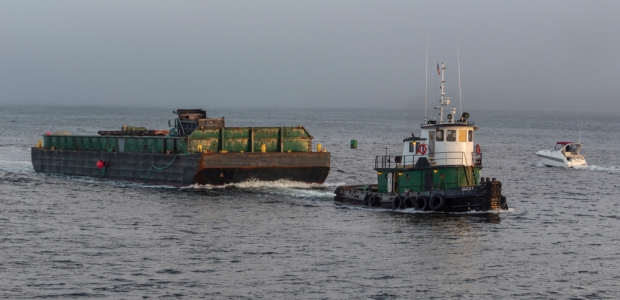
Towing Industry Crew Deaths Fell in 2017
The annual safety report on the industry from the U.S. Coast Guard and the American Waterways Operators shows there were only six fatalities related to towing vessel operations. Seven other deaths were from existing medical conditions and an accidental overdose.
The U.S. Coast Guard and the American Waterways Operators recently released the National Quality Steering Committee's annual safety report, which shows there were only six fatalities in 2017 related to towing vessel operations. Seven other deaths during the year were from existing medical conditions and an accidental overdose, the report says.
The report contains freight carrying towing industry data for calendar years 1994 to 2017. The committee tracks three measures of towing vessel safety and environmental protection:
- Crew fatalities per 100,000 towing industry workers (A crew member's death aboard a towing vessel or barge, or a missing crew member, is considered a crew fatality. Deaths due to existing medical conditions or natural causes, and deaths of external parties, shipyard workers, or shore-side workers are not included in this measure.)
- Gallons of oil spilled from tank barges per million gallons transported
- The number of towing vessel casualties (overall and by incident severity)
There has been a steady decline in crew fatalities, with the highest annual total during the 1994-2017 period being 29 in 1997. Crew fatalities from falling overboard also have declined from 2010 to 2017, the report shows.
Still, the report shows that the towing industry crew fatality rate was higher than the BLS rate for all fatal work injuries in 2012 through 2016, although the towing industry rate was well below the BLS rate for transportation sector fatal work injuries during all of those years.
The leading causes of death during 2000-2017 were falls into the water (79 deaths), asphyxiation (27), being crushed between objects (15), and being struck by a moving object (9).
According to Coast Guard records cited in the report, 84,319 gallons of oil were spilled as a result of 49 tank barge pollution incidents during 2017. One incident, an explosion and fire aboard a barge at an Aransas Pass anchorage near Corpus Christi, Texas, accounted for 95 percent of the spilled gallons -- 79,926 gallons were spilled.